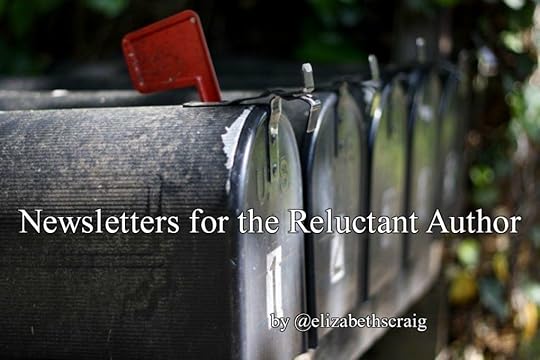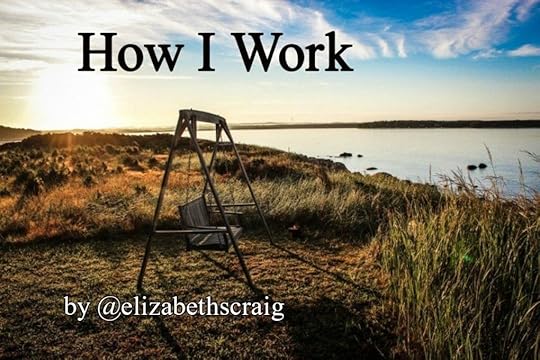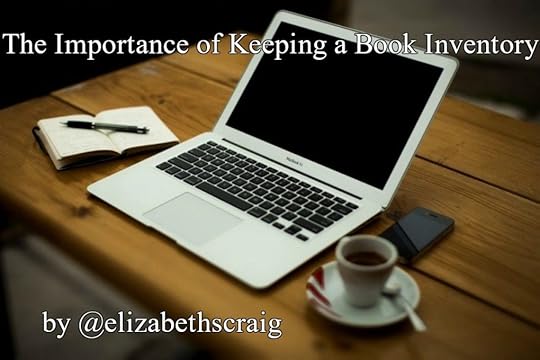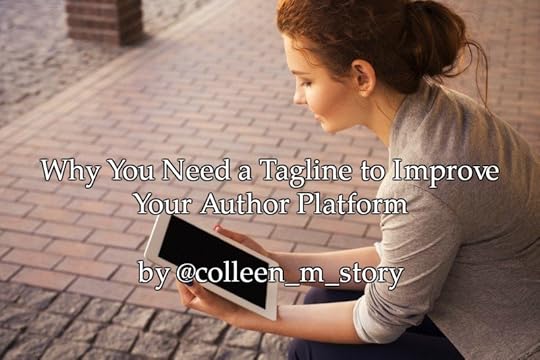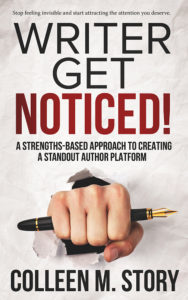Elizabeth Spann Craig's Blog, page 65
April 14, 2019
Newsletters for the Reluctant Author
by Elizabeth S. Craig, @elizabethscraig
I’ve mentioned here before that I was slow to start sending out a newsletter. What really made me finally commit to sending them (in 2013) was that readers were getting irritated. They wanted me to send out a newsletter to let them know when I had a new release. I had been a published author since 2009, so I was 4 years late to the party.
So I finally followed through. I realized that, for the readers who wanted to sign up for my newsletter, they expected me to notify them of releases. That’s how I started out and how I still handle my newsletters today.
I use MailChimp which is free for up to 2,000 subscribers. I do have more than that, so I have to pay to send out my newsletters. Since I only send out newsletters when I have a release, I send out only 3 or 4 emails a year and decided to choose the pay-as-you-go plan (they also have a monthly plan). More on costs here.
Most of the writers I know send out newsletters a lot more frequently than I do and it works out really well for them. But I can’t seem to be persuaded to change what I’m doing. I feel as if I have a sort of pact with my readers now…that they’ll only hear from me in their email inbox when I have a book out. Besides, there are only so many hours in the day. I don’t want to be coming up with newsletters on a monthly or (God forbid) weekly basis.
What’s more, I can’t handle merely announcing the release in the newsletter because it just feels spammy to me. I tried to think of all the value-added things that I could to make the newsletter less like advertising and more useful and personal.
My extras:
Easy recipes (recipes are frequently in the backs of cozy mysteries).
Notes on books I’ve recently read and enjoyed (these aren’t promo tradeoffs with other authors but books I’ve come across myself).
Pictures of my pets (because corgis and cats are adorable) and a quick update on my own life.
Elements that I was specifically asked to include in my newsletters by readers:
The price for the book in different formats and buy-links to the most popular retailers (Amazon for ebook and print, Nook, Kobo, Apple). I also have a link for international readers that takes them to links for their home country (using free UBLs from Draft2Digital).
A full list of all my books, hyperlinked with buy-links.
Where they can find my audiobooks and which titles are available (not all of my books are in audio since it’s a time consuming process).
Upcoming releases (what I’m working on now) and when to expect them (here I tend to be a little vague since the release will be months away).
My email address.
Creating a similar newsletter is pretty easy. Announce your releases. Think about what your readers are interested in and provide it. And make it easy on yourself, too. Set up a template on MailChimp or whatever your newsletter distributor is, and then adjust it depending on the release.
To see an example of my newsletter, click here.
Do you send out newsletters? What sorts of things do you include in yours?
Newsletter Tips for the Reluctant Author:
Click To Tweet
Photo on VisualHunt.com
The post Newsletters for the Reluctant Author appeared first on Elizabeth Spann Craig.
April 13, 2019
Twitterific Writing Links
by Elizabeth S. Craig, @elizabethscraig
Twitterific writing links are fed into the Writer’s Knowledge Base search engine (developed by writer and software engineer Mike Fleming) which has over 50,000 free articles on writing related topics. It’s the search engine for writers.
Have you visited the WKB lately? Check out the new redesign where you can browse by category, and sign up for free writing articles, on topics you choose, delivered to your email inbox! Sign up for the Hiveword newsletter here.
New Stuff:
Cozy Mystery Bundle for Charity: If you love clean, fun mysteries, pre-order this 14-book set for 99¢ and help countless animals. Last year they raised nearly $7,000. This year features all-new stories and 3 new charities. All of the pre-order funds are going to charity.
Click here to pre-order.
Visit our website here: www.summersnoops.com
The author–editor relationship: From getting in touch to making a booking: @LouiseHarnby
Society of Authors Calls on UK Government to Fight Online Book Piracy: @Porter_Anderson @malorieblackman @Soc_of_Authors
Using Ghostwriters: Authors vs. Author Mills: @shilohwalker @JamiGold
The Editor’s 6 Core Questions: @valerie_francis @StoryGrid
Thinking of Taking a Creative Writing Course? Thoughts on Choosing One: @Roz_Morris
Conferences and Events / Miscellaneous
The UK’s CrimeFest Awards Shortlists Include Clinton, Patterson, King: @Porter_Anderson @CrimeFest
The Commonwealth Short Story Prize Names 2019 International Shortlists: @Porter_Anderson
Five Women Authors, Six Women Translators Are on Man Booker International’s Shortlist: @Porter_Anderson
Oscar’s Book Prize Announces Its 2019 Shortlist for Kids Under 5: @Porter_Anderson @pubperspectives
Writer @hanque99 With a Resource for School Visits:
The UK’s Young Writer Prize Opens for Submissions and Remixes Its Sponsors: @Porter_Anderson @pubperspectives
Creativity and Inspiration / Inspiration
Boost Your Creativity: How to Jump-Start Your Brain: @readstevenjames @WritersDigest
Creativity and Inspiration / Inspiration / Reading as Writers
Top 10 books about women and the sea: @charlotteruncie @GuardianBooks
Four SFF Novels with Something Very Specific in Common: @jamesdnicoll @tordotcom
Five Genre-Bending Young Adult Books: @AstridScholte @tordotcom
5 New Nonfiction Books to Inspire a Long Journey: by Victoria Sanderson @DIYMFA
The Best Bookstores in All 50 States: @mental_floss
Creativity and Inspiration / Productivity / Fitting in Writing
Writing: How to Find More Time to Write: @LouiseTondeur @IndieAuthorALLI
Scheduling for Writing Success: @ShannaSwendson
Creativity and Inspiration / Writing Life
Baby Come Back…To Your Library: @LitReactor @helpfulsnowman
How to Be a Writer in Five Steps: by Ellen Birkett Morris @brevitymag
On Running, Prescriptive Teaching, and the Language of First Drafts: @themoneyiowe @CleaverMagazine
Balancing Parts of a Writing Career: @aprildavila
Business Musings: Keeping Priorities Straight as a Writer: @KristineRusch
How I Work: A Typical Day of Writing, Promo, and Business:
Why Copying Other Successful Authors Won’t Make You Successful: @colleen_m_story @TheIWSG
“The Strange Things I’ve Found inside Books”: by Jane Stern @parisreview
18 Famous Writers & Their Weird & Wonderful Work Habits: by Laura Tong @WritetoDone
On Writing with a Typewriter: by Toby Juffre Goode @CleaverMagazine
Appreciating the ‘powerful good’ of the public library: @Kristen_Arnett @NewsHour
Do You Ever Feel Like You’re Not Making Any Progress … At All? @MegDowell
Best Reader, Worse Enemy: @foster_rudy_ @CleaverMagazine
National Library Week: 9 fascinating facts about librarians: by Sam Romano @CNN
Creativity: 3 Ways To Cultivate Discipline In Your Writing Life: by Nathan Wade @thecreativepenn
How long should a writing session be? @pubcoach
5 Reasons a Writer Should Move to Cleveland: by Grace Roberson @lithub
11 pieces of book writing advice you need to know: @TheLeighShulman
Writing and the Creative Life: Boundaries of Space, Boundaries of Time: @GoIntoTheStory
6 Tips to Help You Prep for Your Writing Project: @deadmazquerade @NaNoWriMo
Genres / Horror
The Terror of Seeing Yourself in An Other: 10 Body Doubles in Horror: @beansproutbea@BDisgusting
Genres / Non-Fiction
5 Keys to Writing a Successful Self-Help Book: A Writer’s Checklist: @TCKPublishing
Promo / Blogging
Should All Authors Blog? @RachelleGardner
Promo / Metadata
An Easier Way to Upload Book Metadata to Distribution Platforms: @JoVanEvery @IndieAuthorALLI
Promo / Miscellaneous
Building an Author Platform Without a Smartphone: by Mallory McDuff @CleaverMagazine
7 Myths of Using Press Releases to Promote Your Books: @PublicityHound @JFbookman
Where Writers Get Stuck: Marketing: @allisonmaruska
Publishing / Miscellaneous
How to Fight the Commoditization of Books: @PublishersWkly @markcoker
Secondhand books: the murky world of literary plagiarism: @alisonflood @GuardianBooks
Publishing / News / International Publishing
Turkey’s ITEF Welcomes Fellows; ALTA Translation Award Portals Closing: @Porter_Anderson @pubperspectives
Kalimat Foundation Donates 2,000 Children’s and YA Arabic Books to Italian Libraries: @Porter_Anderson @pubperspectives
Libreka Partners With OverDrive, Bookwire Builds Audiobook Service: @Porter_Anderson @pubperspectives
Icelandic Books to Film: Joni Sighvatsson in Hollywood Buys Bragadottir’s ‘Blood Ties’: @Porter_Anderson @pubperspectives
APA and Bookrepublic’s New Survey of International Audiobook Markets: @Porter_Anderson @pubperspectives
China Bestsellers for March: On Stage and in the Public Domain: @Porter_Anderson @pubperspectives
Publishing / Options / Traditional Publishing / Querying
Finding an agent for Both Fiction and Nonfiction: @Janet_Reid
Should you keep querying after a request for a full? @Janet_Reid
Publishing / Process / Book Design
How To Use Your Book Cover To Sell More Books: @ADStarrling @thecreativepenn
How to create image grids for your ebooks: @BirdsOAFpress
Publishing / Process / Services to Avoid
Is This Publisher Legit? How To Make Your Decision: @justpublishing
Writing Craft / Beginnings
An editor critiques a book’s opening: @msheatherwebb @WriterUnboxed
Writing Craft / Characters / Development
Ways To Fit Character Development Into Your Story: @writingandsuch
Character Type: Companion: @GoIntoTheStory
What Keeps Your Characters up at Night? by Jeanne Kisacky @WriterUnboxed
Writing Craft / Characters / Protagonists
How to Write the Point of View of an Alpha Male: @CindyFazzi @WomenWriters
5 Tips for Introducing Your Main Character: @_HannahHeath
Writing Craft / Diversity
Writing Diversity in Fiction: @punkjoanofarc @CleaverMagazine
Writing Craft / Drafts
Drafting those many drafts: The 10 revision phases: @JessicaStilling @TheWriterMag
Writing Craft / Lessons from Books and Film
Storytelling Tips from the Writer of Blade Runner: by Hampton Fancher @lithub
Writing Craft / Miscellaneous
What Fairy Tale Settings Can Teach Us About Fiction Writing: by Dana Kroos @CleaverMagazine
Showing and Telling: Seven Ways to Help Your Writing Breathe: by Billy Dean @CleaverMagazine
Using Detachment to Create Powerful Fiction: @foster_rudy_ @CleaverMagazine
Don’t Let Your Reader Get Disengaged: @KarenCV
On Timeline Issues: by Dana Isaacson @CareerAuthors
Writing Craft / POV
Third-Person Limited: Analyzing Fiction’s Most Flexible Point of View: @PeterMountford @WritersDigest
Writing Craft / Pre-Writing / Outlining
How to Outline Your Novel with the Hero’s Journey: @savannahgilbo
Writing Craft / Pre-Writing / Research
Writing Characters with ADHD: @AuthorJShulkin @DanKoboldt
Writing Craft / Punctuation and Grammar
What’s a Double Negative? 5 Ways to Use Them Correctly: @GrammarGirl
Writing Craft / Revision
Using Your Kindle For Editing: @BE_Sanderson
When to Stop Polishing a Manuscript: @davidfarland
Writing Craft / Revisions / Critiques
5 Stages of Grief For Writers When Dealing with Negative Feedback: @fcheung217 @CleaverMagazine
Beta Readers: Who, When, Why, and So What? by Barbara Linn Probst @JaneFriedman
Writing Craft / Series
Tips for Writing a Series: @AmandaJoyCabot
Writing Craft / Settings and Description
One Common Way Writers Weaken Their Descriptions: @Janice_Hardy
Writing Craft / Synopses
Synopsis Do’s And Don’ts: @KMAllan_writer
Writing Craft / Word Crafting
Choosing the Right Words for the Scene: Subtle Changes Can Make a Difference: @Janice_Hardy
Writing Craft / World-Building
Guide To Political World Building: @writingandsuch
Writing Tools / Apps
How to Improve Your Editing With Scrivener’s Linguistic Focus: @kristen_kieffer
The Top Writing Links From Last Week Are On Twitterific:
Click To Tweet
The post Twitterific Writing Links appeared first on Elizabeth Spann Craig.
April 11, 2019
A Resource for School Visits
by Hank Quense, @hanque99
What can be more satisfying for an author than showing kids how to create a short story? That’s what I’ve been doing for the last several years in schools and libraries. I think it’s a lot of fun. And now I’ve expanded that experience into a new book called Fiction Writing Workshop for Kids.
By way of background, a few years ago the Valley Middle School in Oakland, NJ asked if I would visit the school and talk to their seventh graders. On visits like this, authors usually talk about their books and read scenes from them. I hate reading scenes! I find it boring and I’m sure I bore the audience with my monotonous voice. Instead of torturing the kids this way, I decided to show them how I go about creating a short story. The slide talk worked like this: I gave them the overall story idea, one that they would want to write. After that, I used a handout with a series of text boxes with questions to have the kids come up with ideas on characters, setting and plot. Finally, I broke the story up into six scenes and showed the kids how to use the text box ideas to write each scene. The talk was wildly successful.
Besides the Valley Middle School, I’ve given this talk in other schools and libraries and I’ve expanded the concept to include two more story ideas.
While I love doing this, my talks are geographically limited. To remove this limitation, I used these three talks as the basis for the ebook called Fiction Writing Workshop for Kids.. Using the advanced technical capabilities of ebooks, the book has graphics as well as audio and video clips embedded into it. The videos show the text boxes and coach the kids on how to develop ideas for the basic story elements: characters, setting and plot. Each story has a final video clip showing the kids which text boxes to use in each scene.
Finally, there is a set of blank worksheets the kids can use to develop stories on their own.
The suggested audience for the ebook is 4th to 7th graders.
This is not an ordinary ebook: it’s interactive and that presents some problems. Not all e-readers can open the epub and mobi versions of this book. Apple computers and IOS devices can open the epub version if they have the free iBook app installed. Some Nooks also can open it. You can open the epub on a PC computer if the computer has Adobe Digital Edition app installed. You can download this free app here: https://www.adobe.com/solutions/ebook/digital-editions.html
The mobi edition will only work on the more recent Kindle Fire tablets.
Other Kindle tablets will not be able to deal with the audio and video clips.
The ebook is available on iBooks at https://apple.co/2CJYDjN
and Kindle at https://amzn.to/2RnU5Yo.
Getting a book published is always a great feeling, but this one felt not just great, but also fulfilling.
Have you made any school visits? How did your talks go?
 Besides writing novels, Hank lectures on fiction writing, publishing and book marketing. He is most proud of his talk showing grammar school kids how to create a short story. He used these lectures to create an advanced ebook with embedded videos to coach the students on how to create characters, plots and setting. The target audience is 4th to 7th graders.
Besides writing novels, Hank lectures on fiction writing, publishing and book marketing. He is most proud of his talk showing grammar school kids how to create a short story. He used these lectures to create an advanced ebook with embedded videos to coach the students on how to create characters, plots and setting. The target audience is 4th to 7th graders.
Writer @hanque99 on a resource for school visits:
Click To Tweet
Photo on Visualhunt.com
The post A Resource for School Visits appeared first on Elizabeth Spann Craig.
April 7, 2019
How I Work
by Elizabeth S. Craig, @elizabethscraig
I’m a fan of a series that Lifehacker is running: “How I Work.” In it, various people in different industries describe how they got where they are, what a typical day looks like, and tips/hacks for how they handle their workload.
Every time I go through my blog feed reader, I always stop to read posts where writers describe what a typical day looks like for them. It fascinates me, although I don’t think I ever adopt what they’re doing, because I know what works for me.
I thought I’d do my own version, edited for space (theirs has lots of helpful details). Keeping their series in mind, here’s my take on it. After writing it out, mine looks a bit repetitive, long, and not as interesting! I think that’s because I’m doing this all day long and not part of a day like some are.
A workday in March:
Got up( 4:45) put workout clothes on, came downstairs, took dog out and fed him, fixed coffee and sat down in front of laptop.
Worked on Edit to Death (1st draft) until reached word goal.
Worked on Checked Out (edits) for 30 minutes
Scheduled several time-sensitive tweets relating to publishing news for the day.
Shared my blog post on Facebook and scheduled a Twitter share.
Quickly checked emails and found that there was a problem with Babelcube’s paperback edition to Amazon (actually 2 separate German translations). Marked on my list to address it later that day.
Had breakfast with my daughter before she headed to the high school.
Went to the gym for a 25 minute workout.
Came back. Responded to comments.
Saw my husband off to work.
Emailed my cover designer about another Babelcube project that is ready to publish: an Italian edition. Asked her if she could squeeze in an altered cover for the translation.
Responded to emails and used my canned response feature for a few requests regarding the blog.
Took another look at the Babelcube issue that I was informed of first thing in the morning. Was told the metadata didn’t match the cover. But…it did. Took me a while to proof it because it was in German, but everything matched. I found the contact info for Babelcube support and wrote them an email for more information.
Worked more on edits. This is a first read-through, so I was mainly making minor adjustments to word choice and fixing typos. I noted any big issues that I wanted to change in a separate document.
Wrote a bit longer on the first draft. Made notes about where I wanted to pick up the next day.
Scheduled tweets for a day that was a couple of weeks in the future (these are the writing-related links that show up on my blog on Sundays).
Ran errands for the better part of an hour.
Ate lunch.
Wrote two blog posts. Found images and hyperlinked links in both posts.
Mailed a book that a reader won in a giveaway.
Cleaned the house and did laundry for 45 minutes.
Responded to blog comments again.
Responded to emails.
Prepared supper.
Made another quick sweep around the house to clean up so that I wouldn’t wake up to any mess.
Checked my calendar and made notes on my to-do list so that I knew what the next day looked like.
My workspace: I have learned my lesson about the dangers of sitting. I move between a chair in the den with good back support and my kitchen counter. I don’t really need a special place to write in.
Keeping track of all I need to do: The day before I make sure to check my Google calendar and then transcribe it to a Notepad (Microsoft) list of things to do that day. I have one saved Notepad text file for every day of the week and update it as I go.
Favorite shortcut or hack: I write straight through a first draft without even pausing to put in chapter breaks. I never fix anything as I go, although I carefully note on a separate document any major issues that I’ll want to change after I finish the first draft.
How I recharge and take breaks: I take lots of micro-breaks during the day to keep myself motivated. Most of what I did on the day above was done in short periods of time with a timer. I love to recharge by reading a good book or watching a good show. On the day in question, the show was a documentary called “California Typewriter”.
What I’m currently reading: An Elderly Lady is Up to No Good
Best advice I’ve ever received: Each day is a clean slate. Don’t worry about the day before but pick up where you are and try to meet your goals. Or, as Ralph Waldo Emerson said: “Finish and be done with it. You have done what you could. Some blunders and absurdities no doubt crept in; forget them as soon as you can. Tomorrow is a new day. You shall begin it serenely and with too high a spirit to be encumbered with your old nonsense.”
That’s my rendition of the Lifehacker series. Does your writing day have a lot of the same elements? What’s your favorite shortcut or hack? Best advice received?
Writer Elizabeth Craig: 'How I Work':
Click To Tweet
Photo on VisualHunt
The post How I Work appeared first on Elizabeth Spann Craig.
April 6, 2019
Twitterific Writing Links
by Elizabeth S. Craig, @elizabethscraig
Twitterific writing links are fed into the Writer’s Knowledge Base search engine (developed by writer and software engineer Mike Fleming) which has over 50,000 free articles on writing related topics. It’s the search engine for writers.
Have you visited the WKB lately? Check out the new redesign where you can browse by category, and sign up for free writing articles, on topics you choose, delivered to your email inbox! Sign up for the Hiveword newsletter here.
I had two books release last Tuesday. :) Checked Out and Edit to Death are now available!
Business / Miscellaneous
Achieving the “It Factor” in Publishing: @tessaemilyhall @A3writers
Why are New York’s bookstores disappearing? by J Oliver Conroy @GuardianBooks
A Librarian on Working Long Hours for Low Pay: @Kristen_Arnett @lithub
How to Get Started as a Freelance Writer in 6 Simple Steps: by Ali Hale @writing_tips
The Importance of Keeping a Book Inventory:
How NOT to Start a Copywriting Business: @writingcookbook
Conferences and Events / Miscellaneous
Bologna Names 2019 ‘Best Children’s Publishers of the Year’ Awards: @Porter_Anderson @pubperspectives
Bologna’s Guest of Honor is Switzerland: Joie de Lire is Among the Big Three: @oliviasnaije @pubperspectives
Bologna Children’s Book Fair Announces Moscow Book Fair Partnership: @Porter_Anderson @pubperspectives
Wales’ International Dylan Thomas Prize Announces Diverse Shortlist: @Porter_Anderson @NK_Adjei @guygunaratne @SarahGPerry @NovuyoRTshuma
German Book Prize Draws 173 Titles for 2019 Competition: @Porter_Anderson @pubperspectives
BookExpo Touts Its New Logo and an Emphasis on Personal Engagement: @Porter_Anderson
Bologna Book Fair 2019 Attendance Exceeds Last Year’s by 5 Percent: @Porter_Anderson @pubperspectives
Rathbones Folio Prize Shortlist: Eight Works in Fiction and Nonfiction: @Porter_Anderson @RathbonesFolio @pubperspectives
Creativity and Inspiration / First Novels
How to Write a Novel – 15 Steps to Take You From Start to Finish: @ReedsyHQ
Creativity and Inspiration / Inspiration
Creativity, Symbolism and Writing With The Tarot: @carodonahue @thecreativepenn
7 Things to Try When Writing Is Hard: @KMWeiland
Improving Your Writing With Dungeons & Dragons: @JaleighJohnson @Kerrie_Flanagan @WritersDigest
5 Tips to Spark Your Writing Creativity: @laina_turner
Writer Seeks Experiences: @barbaraoneal @WriterUnboxed
Creativity and Inspiration / Inspiration / Reading as Writers
6 Female Time Travelers Who Get the Job Done: @nataliezutter @tordotcom
Five Books Featuring Complex Mother/Daughter Relationships: @Leannarenee @tordotcom
Creativity and Inspiration / Productivity / Fitting in Writing
Useful Time Management Hacks Every Writer Should Know: by Kristen Ford @WritetoDone
Creativity and Inspiration / Success
How To Be Successful As A Writer: @thecreativepenn @Bang2write
Creativity and Inspiration / Writing Life
12 Things to Do If You Absolutely Hate What You Just Wrote: @MegDowell
How to Plan a DIY Writing Retreat: @erikaliodice @writerunboxed
Beating Overwhelm: @laina_turner
When Do You Let Go of a Piece of Writing? @AneMulligan @EdieMelson
The 5 Things You Need to Know to Finish Your Book: @carodonahue
Wounded Writer Syndrome: @SueColetta1 @killzoneauthors
Care and Feeding of the Weary Writer: @jmunroemartin @WriterUnboxed
Exercise and Writing: @DeanWesleySmith
15 Reasons People Still Think Being a Writer Must Be Easy: @MegDowell
The Most Important Writing Lesson I Ever Learned by @SPressfield :
10 Best Writing Communities You Need to Join Today: by Claire Wilkins @Astrohaus
“6 Writing Insights I Learned From My 9-Year-Old Writing Partner”: @thedailymba @NaNoWriMo
Genres / Fantasy
The Problem With Oppressed Mages: by Oren Ashkenazi @mythcreants
Genres / Horror
Seven Succulent Tips For Writing Horror: @EZmisery @HorrorTree
Genres / Miscellaneous
7 Reasons to Create a Personal History (and what it is): @writingthrulife
Genres / Mystery
What’s Your Mystery Subgenre? @ZaraAltair
7 Secrets to a Killer Psychological Suspense: @EmilyDCarpenter @CareerAuthors
Genres / Science Fiction
3 Things Authors Of The Golden Age Of Sci-Fi & Fantasy Did Better:
Promo / Ads
8 Costly Facebook Ad Mistakes and How to Avoid Them: @LisaDJenkins @SMExaminer
Promo / Blogging
The Ultimate Cheat Sheet For Writing Blog Post Titles: @Writers_Write
Promo / Miscellaneous
How Not to Market Your Book – 12 Rookie Mistakes: @CaballoFrances
Why You Need a Tagline to Improve Your Author Platform: @colleen_m_story
Promo / Newsletters
Gain More Subscribers for Your Author Mailing List: @IndiesUnlimited
Promo / Podcasts
Five Steps to Giving an Awesome Podcast Interview: @Marielle_Orff @DIYMFA
Promo / Social Media Tips
Social Media Updates and Trends: @sabsky
Decluttering Your Author Social Media Accounts: @EJWenstrom
Promo / Websites
DIY Author WordPress Sites: 5 Skills for Success: @nocargr @BookWorksNYC
Publishing / Miscellaneous
Scribd Opens Author-Friendly ‘Originals’ with Garrett Graff’s ‘Mueller’s War’: @Porter_Anderson @tripadler @vermontgmg
Publishing / News / International Publishing
As Bologna Children’s Book Fair Opens: A Roundup of Titles Being Presented: @Porter_Anderson @pubperspectives
International Publishers Association Seminars on African Publishing: ‘Africa Rising’: @Porter_Anderson @pubperspectives
During Bologna: Rights Sales Open on Oscar Winner Lupito Nyong’o’s ‘Sulwe’: @Porter_Anderson @Lupita_Nyongo
Marcus Leaver Acquires Carlton; Books International Acquires Marston: @Porter_Anderson @pubperspectives
Publishing / Options / Self-Publishing
How to Self-Publish a Book on Amazon: @ReedsyHQ
Publishing / Options / Traditional Publishing / Querying
How to Catch an Agent with Your Hook: @tessaemilyhall
Publishing / Process / Legalities
Setting Up Your Writing Business for Legal Protection: @DaveChesson @BookWorksNYC
3 Types of Contracts Every Writer Should Understand: by Leonard D. DuBoff and Amanda Bryan @JaneFriedman
Pseudonyms, Noms de Plume, Pen Names, or Not? @charitybradford
Writing Craft / Beginnings
Flog a Pro: Would You Pay to Turn the Page of This Bestseller? @RayRhamey @WriterUnboxed
Real Life Diagnostics: Does This Middle Grade Opening Draw You In? @Janice_Hardy
Writing Craft / Characters / Arc
How to Craft Static Character Arcs For Your Novel: @kristen_kieffer
Writing Craft / Characters / Development
Character Type: Angel: @GoIntoTheStory
Creating Detailed Personas (Podcast): @timgrahl @valerie_francis
Writing Craft / Characters / Protagonists
Why No One Cares About Your Protagonist: @manzanitafire @LitReactor
When the protagonist is the nemesis: @GoIntoTheStory
Bonding Character and Reader: @jamesscottbell
How To Write Strong Female Characters: @LisaHallWilson
Writing Craft / Common Mistakes
Common Pitfalls Authors Should Avoid: @DanBlank
Writing Craft / Conflict
Rethink Your Fight Scenes: @ryanjoseph87
Writing Craft / Dialogue
8 Clichés That Are Killing Your Dramatic Dialogue: by Robert Wood @standoutbooks
Writing Craft / Diversity
Finding a Voice for Mixed-Race Characters in Mystery: @vivien_chien @CrimeReads
Writing Craft / Drafts
How To Write A Killer First Draft In 6 Steps: by Gilbert Bassey @LiveWriteThrive
Writing Craft / Lessons from Books and Film
David Foster Wallace’s Obsession With Failure: @rlackey15 @lithub
Writing Craft / Miscellaneous
Beware “Writing What You Know.” @annerallen
3 Tips for Writing Action Scenes: by Nils Ödlund @mythicscribes
Are you applying what you learned last year to your current writing? @DeborahJay2
Writing About Casual Sex Without Making It Fanservice for Men: @mythcreants
The Many Kinds of Narrative Hooks: from Just a Writing Aid
Writing Craft / Pre-Writing / Plotting
How to Create a Plot: @JerryBJenkins
Storyteller’s Rulebook: Have At Least Six Painful Decisions: @CockeyedCaravan
Writing Craft / Revision
Writing a Novel: Top 10 Editing Tips: @Sofia_Ashdown @thecreativepenn
3 Signs It’s Time to Stop Editing That Manuscript: @mindofkyleam
Writing Craft / Revisions / Critiques
The Pros and Cons of Beta Readers: @Belinda_Pollard
Writing Craft / Tropes
The Difference Between Archetypes, Tropes, and Clichés: @Janice_Hardy
Writing Craft / Voice
Finding Your Voice as a Writer: @JaneGodman @jemifraser
Writing Craft / Word Crafting
Redundant Writing and How to Exorcise It: @PBRWriter
Writing Tools / Miscellaneous
Two Online Book Creation Tools That Are Worth the Money: @carlaking @BookWorksNYC
Uncategorized
3 Misconceptions About Copyright (and how to protect yourself): @KelsieEngen
The Top Writing Links From Last Week Are On Twitterific:
Click To Tweet
The post Twitterific Writing Links appeared first on Elizabeth Spann Craig.
April 4, 2019
The Importance of Keeping a Book Inventory
by Elizabeth S. Craig, @elizabethscraig
Fortunately, the olden days of being a self-published writer are over. Those days involved keeping large quantities of paperback novels in your garage or closet or even carrying them in the trunk of your car as John Grisham famously did for his first book (he had a small publisher instead of self-publishing…but the distribution wasn’t there).
Today, it’s all about POD, print on demand. Amazon’s KDP Print (formerly CreateSpace) and IngramSpark wait until there’s an order from a reader to print a book. No inventory or storage required.
Because it’s so easy, it’s also easy for me to get very absent-minded about my own personal inventory.
Not knowing your home inventory is a bad thing for many reasons:
Do you know how many copies of your latest release you have? If not, you may be surprised when you run a giveaway during a blog tour and find that you don’t have a copy of the book to sign and send to the winner.
If you have a book signing or are appearing at a conference, you may think you have copies of your most popular titles (and that’s always what readers ask me when I’m at an event…”What’s your favorite book?” Since I hate answering that question, I refer them to my most popular books with readers). But you may be showing up at your event without the first book in your series.
Sometimes a reader may email you and ask for a signed copy of a particular book to be sent as a gift for a family member. There will be a delay if you must order a copy to be sent to you before sending it along to the reader.
Another problem is having too many books. What if you don’t know how many books you have? Maybe they’re in a box under a guest room bed or stowed in a closet, yellowing. I had old author copies from my days writing for Penguin and recently sold them for a $1 apiece at an event. Yes, they sold out, but I also managed to undercut my own full-priced books.
If you have an Etsy store, as I do, you may regularly get requests for signed books…for whichever book the reader left off on in your series. Again, a delay will occur if you have to have copies sent to your house first.
I have done all of the above. Sometimes more than once.
Now I have more of a system to prevent the embarrassment of looking unprofessional (and for me, it’s definitely an embarrassment).
When I have a new book release, I order several copies for myself.
When I accept an invitation to an event, I put two notes on my calendar: one noting the date of the event and the other to remind myself to order books for it. (Note: for other traditionally published or hybrid mystery writers out there, I’ve found the best place to order my trad pubbed books is through independent bookseller Mystery Lovers Bookshop. They frequently run 20% off sales and offer free shipping with orders over $50. It’s nice not to pay full price for my books. And you’re supporting an indie bookstore in the process.)
I keep a list on my computer of ordered books…the dates I ordered them and the titles. Whenever one sells, I adjust the number in stock. When it hits a certain threshold, I order more.
Unless you do tons of events, you really don’t need too many titles on hand. I feel comfortable having just three of each title unless I’m going to a signing where I know I’ll sell a lot of books…then I like more of the first books in a series, more of reader favorites, and more of my latest release.
How do you manage inventory as a writer? How many books do you keep in stock at your house?
The Importance of Managing a Home Inventory of Our Books:
Click To Tweet
Photo on Visualhunt.com
The post The Importance of Keeping a Book Inventory appeared first on Elizabeth Spann Craig.
March 31, 2019
Why You Need a Tagline to Improve Your Author Platform
by Colleen M. Story, @colleen_m_story
When your readers come to your website, how long does it take them to figure out what kind of writing you do?
If it takes more than a few seconds, you may be losing readers, subscribers, and others who could be interested in your work.
According to research and consulting firm Nielsen Norman Group, users often leave web pages in 10-20 seconds. To gain user attention, you have to clearly communicate your value within 10 seconds.
That may seem a bit drastic, but if you think about it, you’ll find it rings true. Just take a few minutes to browse the Internet and discover how patient you are. You may be surprised at how quickly you move on if a site doesn’t hold your interest.
Fortunately, you can take full advantage of those 10 precious seconds with your potential readers by including one important thing on your website: a tagline.
Here’s why this can be so helpful to you and your readers.
Author Websites Without a Tagline Say Nothing to the Reader
To help you see just how much an author tagline can help, I tried an experiment. I encourage you to try it too the next time you’re online.
I took about 10 minutes to look up some random author sites, simply by choosing “author website” in a Google search. Then I spent no more than 10 seconds looking at each of them, and see if I could tell in that time what the writers wrote and what kind of reader they were targeting.
The first one I clicked on had the author name, and then the words, “Author, Blogger, Traveler.” That didn’t tell me much, and certainly didn’t help me to decide if I’d like this writer’s work or not.
The second one just had the author’s name and nothing else. The third had the author’s name, then the name of her book series, but since I hadn’t read the series, I still didn’t know what kind of writing she did.
The next one had the author’s name and then “the writer next door,” which again, didn’t give me any clues as to what kind of writing I could expect from this author. Several others had the writer’s name and “bestselling author” underneath—great, but again, giving me no clue if the author’s writing was something I might like. (By the way, this one is used a lot, so it doesn’t really set an author apart.) Several more simply said “official author website” under the name—again, not giving me any useful information.
After a bit of searching, however, I found some author websites that were much more helpful.
Author Websites with Effective Taglines
On my second search, I discovered four author websites that made it clear to me within that first 10 seconds what kind of writing they did.
On Jean C. Joachim’s site, I see “Stories from the Heart by Jean C. Joachim.” Already that’s more information than I was finding on many other sites. Underneath her name I find “USA Bestselling Author,” and then a graphic of hearts. So I’m guessing romance author, which is a start.
Danielle M. Haas has her name at the top of her site, then, “Love that Captures You, Danger that Lures You.” I love this tagline—it’s not only clear, it’s intriguing. It suggests romance with a bit of a mystery or criminal twist. With only that information, gleaned in two seconds, you can tell whether you might be interested in this writer’s work.
The graphic behind her name also looks like a lipstick smear, so I’m guessing the romance is primary. That’s great information all in 10 seconds or less.
Rene Regent also has a heart graphic under her name, and the tagline, “Love Grows in Unexpected Places,” giving me the idea she writes romance in exotic settings. I scroll down and see three of her book covers, which support that idea, and then the words, “Strong, protective heroes, feisty independent heroines.” Within 10 seconds, I’ve got a good idea what this author writes about—at least enough to decide if I want to read more.
Dani Pettrey has “up all night suspense” under her name, along with a rather spooky picture of a remote beach—letting me know right away the tone and genre of her books. I’m drawn in.
If you go look at these sites and compare them to others that don’t have taglines, you can see how quickly and effectively a tagline can convey information to the reader. Now the kicker—it took me quite a bit longer to find the second group of authors than the first. Most of the author websites I pulled up did not have a tagline, which seems a shame, when it’s such a simple thing that can add so much to your platforms and marketing efforts.
Make it Easy for Readers to Choose You
If you’re a celebrity author who’s already well known, you may not need a tagline, but as an indie author, freelance writer, or any other sort of writer trying to make at least some money from your work, it’s important to keep your customer—your reader—prominently in mind.
She’s a busy person, just like you. She doesn’t have much time to read, or to discover new authors, but she likes it when she finds one whose work speaks to her. You need to do everything you can to make it easy for her to choose you.
A tagline is a simple thing to add to your website, social media platforms, book swag, and business cards, yet it can add a lot of clarity to your marketing efforts.
As to how to create an author tagline, that’s another post, but meanwhile if you want to give it a try, focus first on your genre, then what’s unique about your writing. Try to make the tone reflective of your stories, but don’t get so clever you lose understanding.
Ten seconds. That’s all you’ve got to win a reader over. An author tagline can help you do that. It’s simple, and it works. Give it a try—you may find that it not only helps give your readers some clarity about what you do, but it can help you as the author get clear about it, too.
For more information on how to create not only an author tagline, but a mission statement, author business blueprint, and more, check out Colleen’s new book, Writer Get Noticed! Get your free chapter here.
 Colleen M. Story inspires writers to overcome modern-day challenges and find creative fulfillment in their work. Her latest release, Writer Get Noticed!, is a strengths-based guide to help writers break the spell of invisibility and discover unique author platforms that will draw readers their way. With over 20 years in the creative industry, Colleen is the founder of Writing and Wellness (writingandwellness.com) and Writer CEO (writerceo.com). Please see her author website (colleenmstory.com) or follow her on Twitter (@colleen_m_story).
Colleen M. Story inspires writers to overcome modern-day challenges and find creative fulfillment in their work. Her latest release, Writer Get Noticed!, is a strengths-based guide to help writers break the spell of invisibility and discover unique author platforms that will draw readers their way. With over 20 years in the creative industry, Colleen is the founder of Writing and Wellness (writingandwellness.com) and Writer CEO (writerceo.com). Please see her author website (colleenmstory.com) or follow her on Twitter (@colleen_m_story).
Source
Nielsen, J. (2012, September 12). How Long Do Users Stay on Web Pages? Retrieved from https://www.nngroup.com/articles/how-...
Photo on VisualHunt
The post Why You Need a Tagline to Improve Your Author Platform appeared first on Elizabeth Spann Craig.
March 30, 2019
Twitterific Writing Links
by Elizabeth S. Craig, @elizabethscraig
Twitterific writing links are fed into the Writer’s Knowledge Base search engine (developed by writer and software engineer Mike Fleming) which has over 50,000 free articles on writing related topics. It’s the search engine for writers.
Have you visited the WKB lately? Check out the new redesign where you can browse by category, and sign up for free writing articles, on topics you choose, delivered to your email inbox! Sign up for the Hiveword newsletter here.
Business / Miscellaneous
INFOGRAPHIC: The Surprising Reading Habits of Millennials: by Expert Editor
Conferences and Events / Miscellaneous
Neue Festival Literatur 2019: ‘Writers (Are) to Look at What Memories Mean in Their Work and…Careers’: @Porter_Anderson @pubperspectives
Creativity and Inspiration / First Novels
Quick Tips for New Writers on Getting Started: by Anna Davis @CBGBooks
Creativity and Inspiration / Goal setting
How and Why to Get Clear about Your Ultimate Career Goal: @WritersCoach
Creativity and Inspiration / Inspiration / Quotes
“You Don’t Know Anything.” And Other Writing Advice from Toni Morrison: @knownemily @lithub
Creativity and Inspiration / Inspiration / Reading as Writers
6 SFF Characters That Tend Towards Lawful Good: by Stubby the Rocket @tordotcom
8 Crime Novels Featuring Intense Female Friendship: @adeleparks @CrimeReads
8 Stories About How Your Family Can Mess You Up: by Mandeliene Smith @ElectricLit
Six Standalone Fantasy Novels that Stand Out: @ChristophGolden @timlebbon @tordotcom
Five Books That Deal with What Comes after World-Changing Shenanigans: @ek_johnston @tordotcom
How to Read More: @austinkleon
Creativity and Inspiration / Productivity / Fitting in Writing
How to Create Your Self-Publishing Production Schedule: @laina_turner
How To Do Anything in 15 Minutes: @laina_turner
Creativity and Inspiration / Success
3 Author Success Essentials: @sandrabeckwith @JFbookman
Creativity and Inspiration / Writing Life
10 Specialty Bookstores That Are Definitely Worth a Visit: @knownemily @lithub
4 Ways to Waste Time (and How They Can Help Your Writing): @FinishedPages @womenonwriting
Should You Quit Your Current Writing Project? @PSHoffmanAuthor @WritersDigest
7 Ways to Write a Novel with Confidence: @Roz_Morris @IngramSpark
How to Tackle NaNoWriMo or Other Writing Sprints With Clinical Depression: by Andrea Tomé @NaNoWriMo
Writing Tips: Finding Your Perfect Niche In Fiction: by Edwin McRae @thecreativepenn
Four Ways to Protect Your Creative Brain: @besscozby @DIYMFA
Give Yourself Permission to Write: @lornafaith
Genres / Fantasy
7 Tips to Creating a Fantasy Army in Fiction: Add More Than Swords: @cyallowitz
Genres / Historical
Three Ways to Make The Historical Real: @KatiaRaina1
Genres / Horror
The 13 Best Women Writing Horror Today: @xymarla @LitReactor
Genres / Memoir
“Why I Was Finally Able to Write About My Husband”: by Judy Goldman @lithub
Memoir Writing: 7 Questions to Help you Get Past the Surface and Deepen Reflection: @writingthrulife
Genres / Miscellaneous
How important is genre? @valerie_francis @StoryGrid
Genres / Mystery
Crime fiction in which houses are characters, themselves: @mkinberg
Focusing in on Different Households in Mysteries: @mkinberg
Cozy Mystery Writing: Suspect Interviews:
Genres / Romance
What are the Romance Subgenres? (And How to Pick One): @ReedsyHQ
Genres / Science Fiction
Putting the Heart in Science Fiction: An Analysis of the Screenplay ‘Her’: @DustinGrinnell @WritersDigest
7 Sci-Fi Twitter Feeds to Follow: @melanippee
Promo / Blogging
Should authors have a blog? (Podcast): @timgrahl @valerie_francis
Promo / Book Reviews
Writing Better Book Reviews: by Wordy Nerd Bird
Promo / Connecting with Readers
How the “Ideal Reader” Myth Hurts Your Writing Process: @danasitar @thewritelife
Promo / Miscellaneous
Online Catalogs: Are They Worth the Money? @JohnDoppler
5 Tips To Spice Up Your Amazon Author Pages: @ChrysFey @thecreativepenn
4 Common Amazon Book Marketing Complaints Demystified: @Bookgal
Promo / Newsletters
How to announce your book with an email blast: @sandrabeckwith
Promo / Video
Using Video Marketing? Why It’s Important and 3 Apps to Try: @CaballoFrances
Publishing / Miscellaneous
Publishing Far and Wide to Sharpen Your Skills, Thicken Your Skin: @AlyConnerBrown
Unexpected Bestsellers: by Richard Charkin @pubperspectives
‘Feminist Fairy Tales’: Authors Talk About Writing ‘Other Kinds of Books’: @oliviasnaije @pubperspectives
Using Templates to Save Time:
Understanding Audiobook Production: @ktsetsi @RichMillerVO @JaneFriedman
Industry Notes: ‘The Mueller Report’ Already Is a ‘No. 1 Bestseller’ on Amazon: @Porter_Anderson @pubperspectives
Greenhill Books Commemorates the 75th Anniversary of the Real-Life ‘Great Escape’: @rogertagholm @pubperspectives
Publishing / News / International Publishing
European Parliament Votes in Favor of Controversial Copyright Directive: @Porter_Anderson @doctorow
Report: Spanish-Language Ebook and Audiobook Subscription Sales Grow: @Porter_Anderson @javiercelaya
Polish Legislation Could Equalize VAT on Ebooks and Print by June 1: @jaroslawadamows @pubperspectives
China Bestsellers for February: ‘Paid-For Content’ in the Chinese Market: @Porter_Anderson @pubperspectives
Frankfurt’s Juergen Boos on the International Perspective: ‘It’s Always Changing’: @Porter_Anderson @comm_cationista
In Québec: New Report Cites Uptick for Book Sales; Booksellers Debate Selling Backlist: @lukaesque @pubperspectives
Publishing / Options / Traditional Publishing
Truths about Publishing You Can Only Learn in the Trenches: @msheatherwebb
Publishing / Options / Traditional Publishing / Querying
8 Things To Do While You Wait After Querying: @RachelleGardner
Publishing / Process / Book Design
7 Tips for a Successful Relationship with Your Book Cover Designer: @ReedsyHQ
Publishing / Process / Distribution
2019 eBook Distribution Round-up: Aggregators Comparison Chart and FAQs: @Wogahn
Writing Craft / Characters / Development
7 Things Your Character Is Hiding: @KMWeiland
Character Creation in Literature — A Simple Principle: @Peter_Rey_
Writing Craft / Common Mistakes
Common writing mistakes and how to avoid them: @AuthorMarilene
Six Mistakes That Can Kill a Great Plot: by Oren Ashkenazi @mythcreants
Writing Craft / Dialogue
Spellcheck Cannot Save You! Writing Dialogue 101: @GramrgednAngel @BookWorksNYC
Writing Craft / Miscellaneous
Tips for Writing an Adopted Character: @VictoriaGHowell
Tips for Avoiding Reporter Syndrome: @ml_keller
7 Tips for Using Story Writing to Raise Awareness for a Cause: @_HannahHeath
12 Reasons You’re Not Getting Any Better at This Whole Writing Thing: @MegDowell
Look Forward, Not Backward, to Pull the Reader In: @SeptCFawkes
Parenting Advice, Elevator Pitches, and the Essential Heart of Story: @KAMcCleary @WriterUnboxed
Layering Is The Secret To Crafting A Stronger Plot: by Paige Duke @standoutbooks
Writing Craft / Pacing
Writing a Page-Turner: @valerie_francis @StoryGrid
How to Write a Real Page-Turner: @lwreyes
Writing Craft / Pre-Writing / Story Concept
Optimizing Your Story Ideas for Stronger Engagement: by Chris Winkle @mythcreants
Writing Craft / Punctuation and Grammar
The Plight of Grammar in Writing: @Douglewars
Writing Craft / Revision
4 Ways to Prevent Errors from Invading Your Books: @ZoeMMcCarthy
Writing Craft / Revisions / Critiques
How to Love (Not Hate) Critiques: @KelsieEngen
Sitting with Discomfort: Negotiating Difficult Critiques: @TashaSeegmiller
Writing Craft / Scenes
Writing Tips For Worthy Scene Sequels: @KMAllan_writer
Writing Craft / Series
How Writing a Series Boosts Your Author Career: @ZaraAltair @ProWritingAid
Why You Should Be Writing in a Series: by Tom Ashford @pbackwriter
Writing Craft / Word Crafting
Inconsistencies in Word Use: @nancyjcohen
26 Feel-Good Words:
Writing Tools / Resources
Productivity Apps for Writers: @AuthorMarilene
10 Literary Podcasts all Writers Should Listen To: @cleemckenzie
Uncategorized
An easy way to hear your writing aloud: @pubcoach
6 Top Tips to Build Writing Focus with Pavlov and Pomodoros: @derekralston
Ways to Beef Up Conflict & Mystery – First Page Critique: @JordanDane @killzoneauthors
The Top Writing Links From Last Week Are On Twitterific:
Click To Tweet
The post Twitterific Writing Links appeared first on Elizabeth Spann Craig.
March 28, 2019
Cozy Mystery Writing: Suspect Interviews
by Elizabeth S. Craig, @elizabethscraig
Suspect interviews aren’t quite as simple as they may seem. Something that may seem very straightforward for a police officer can be very different for a gifted amateur.
Here are some possible pitfalls and some workarounds for interviewing your cozy mystery suspects:
Why should anyone give an amateur sleuth information at all? Unlike a police interview where a suspect might feel compelled to answer questions, an interview with an amateur sleuth is more like a conversation gone wrong. Suddenly, the person the suspect is talking with becomes very nosy about uncomfortable events or something rather personal.
There are different ways to go about this. You could have your sleuth be someone especially likeable and easy to talk to…someone that people automatically open up to. You could have your sleuth be a professional snoop: maybe a journalist or a private investigator. Or you could go the route where your sleuth is discounted and underestimated by the suspect: Agatha Christie’s Miss Marple is an excellent example of this.
Hunting down suspects. Again, this is harder for an amateur. Police only have to knock on the suspect’s door and they have an interview. The sleuth can’t exactly do that (not without attracting a lot of attention to herself, anyway). It can be easier if the suspect has a known routine (always walks his dog at lunchtime, attends church every Sunday), works in a public place, or is out and about in town a lot (this only works if the sleuth is, too). If your cozy mystery employs a themed hook (cuisine, pets, quilting, etc.), then that can be a fun way to get suspects interviewed, too by centering the interviews around the theme. Maybe the murder happens at a quilt show or at a restaurant the sleuth owns.
Injecting variety. Wherever you interview your suspects, one pitfall is that these conversations can start running together if you’re not careful. They don’t all need to be at the local diner or the quilt show, etc. Think about other settings and other ways to pull the suspects in. One natural spot to have a suspect interview is at the funeral of the victim. After all, these suspects (if it’s a true cozy) should all know the victim.
Too much information is provided. I wrote more about this a few weeks ago in a post about parceling out information. If the suspect gives the sleuth too much information, you may end up with a very short mystery or an obvious murderer.
Too many back-to-back interviews. This is something I have been guilty of in the past and had to have corrected by various editors. Cozy mysteries are about the mystery, but there are so many other important elements to include–especially the sleuth’s friendships and hook-related hobbies that she works on in her spare time. Not only does this help the reader connect to the sleuth, it helps accomplish the variety the story needs.
If you’re a cozy writer, what hazards have I missed with suspect interviews? Do these look familiar to cozy readers? And, if you write other genres, what kinds of pitfalls do you encounter as you write?
Cozy Mystery Writing: Tips for Better Suspect Interviews:
Click To Tweet
Photo on VisualHunt
The post Cozy Mystery Writing: Suspect Interviews appeared first on Elizabeth Spann Craig.
March 24, 2019
Templates as Time Savers
by Elizabeth S. Craig, @elizabethscraig
There are all sorts of time savers out there. They’re not really shortcuts, but they definitely help to both make projects less-overwhelming and quicker to tackle. One of my favorite time-savers is the humble template.
Here are four of my favorites:
The outline template. Yes, I have a very basic template for a cozy mystery. That’s not to say that I won’t deviate from it, but having it there makes the initial stages of planning a book much easier. Outlining isn’t my favorite activity, and this helps it go much quicker.
The back matter template. If you have a back matter template, you simply have to update it each book. It’s a no-brainer. Mine has an ‘about the author’ (again, make sure to keep yours updated), asks for a review, gives my contact info, reminds readers that they can find my book in different formats (like audio), gives my acknowledgments, and provides a list of all my books.
The newsletter template. Newsletters can be a time-consuming activity (even if you only send them at release time, as I do). It makes it so much easier for me to have an established template on MailChimp that I can simply update each time. For more about their templates, click here.
The canned response template. Instead of spending a lot of time responding to spammy guest post requests, I use Gmail’s canned response feature. I have different canned responses for various frequently-received emails (and sometimes I’ll just use the template as a base and add something more personal to it). To read more about canned responses on Gmail, click here.
For ideas on other ways to use templates, see:
Jenny Hansen’s thoughts on setting up a manuscript template in Word
Janice Hardy’s plot template to keep your story on task
Tessa Emily Hall’s marketing plan template
Do you use any of these template tools? What shorts of time-savers do you use?
Using Templates to Save Time as a Writer:
Click To Tweet
Photo on VisualHunt.com
The post Templates as Time Savers appeared first on Elizabeth Spann Craig.

